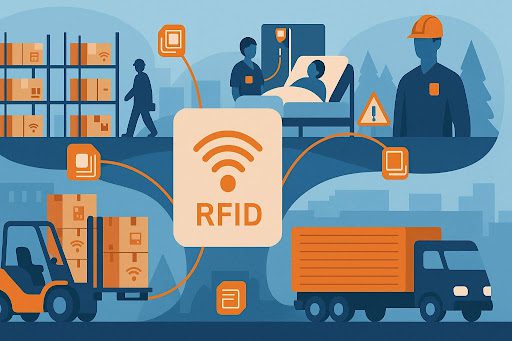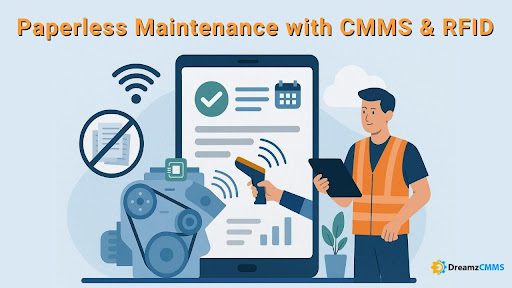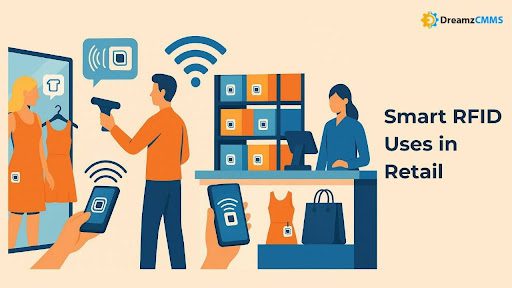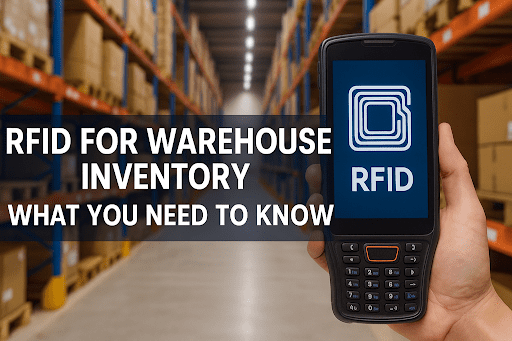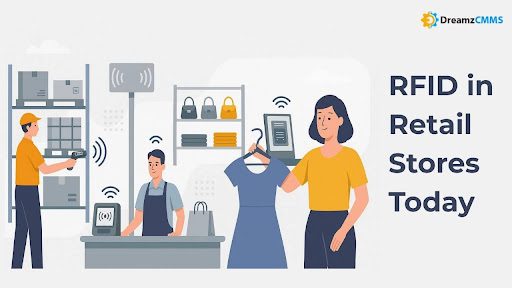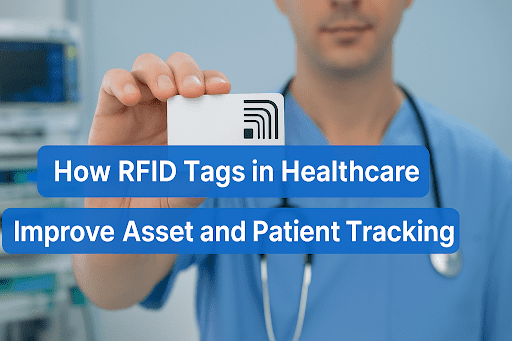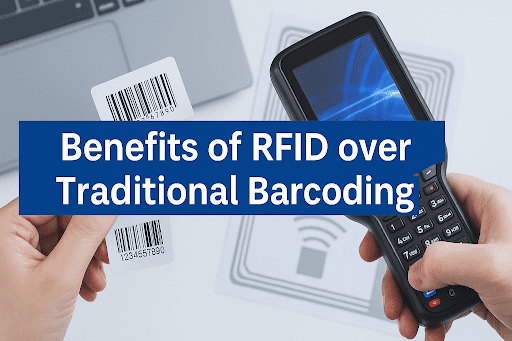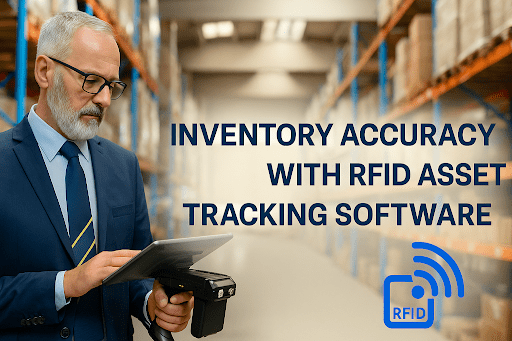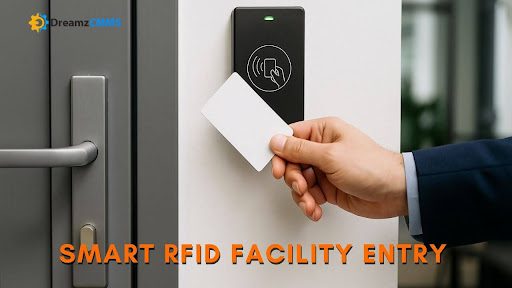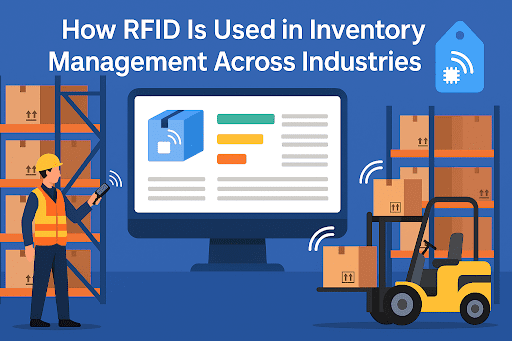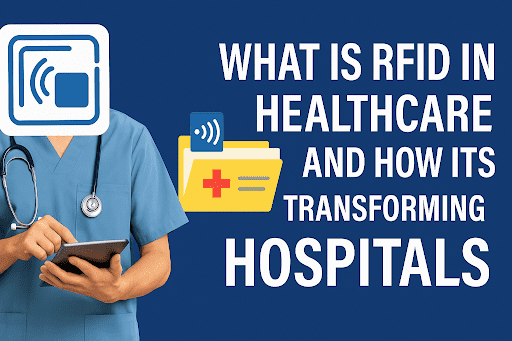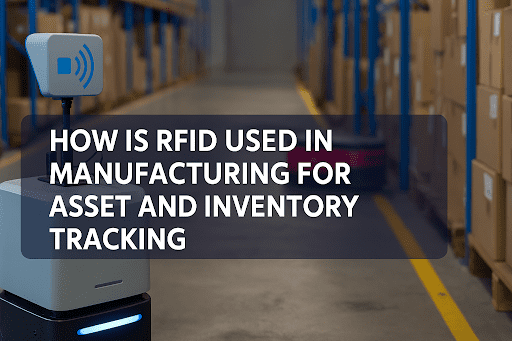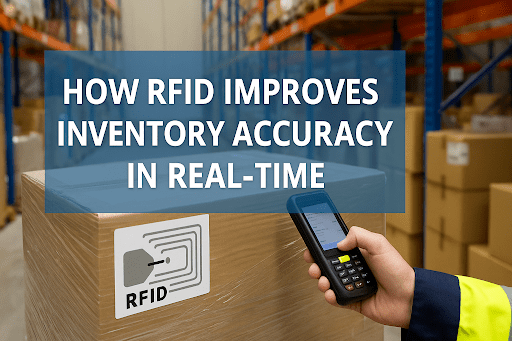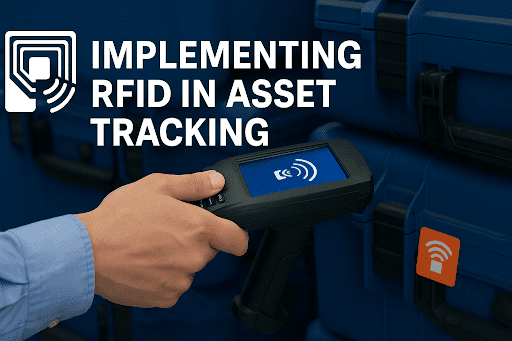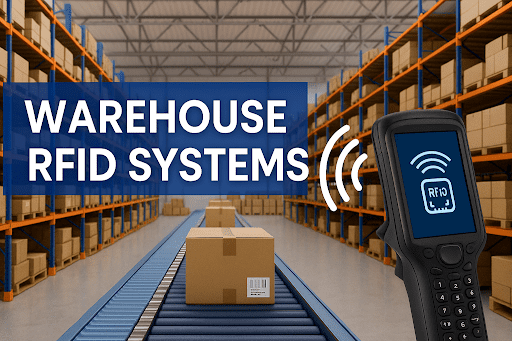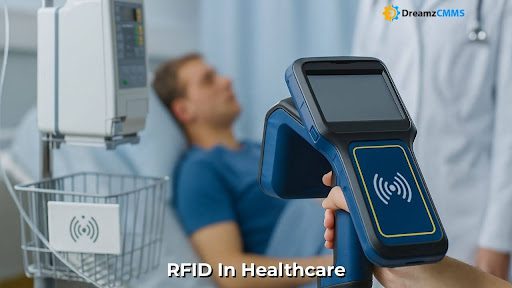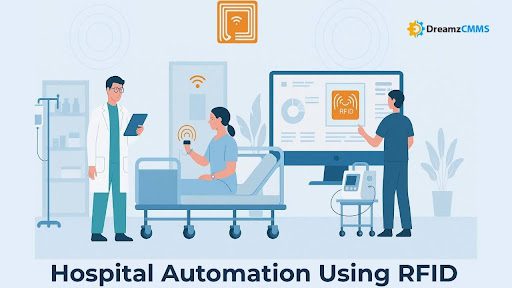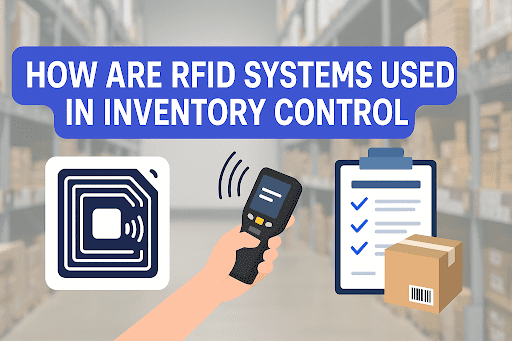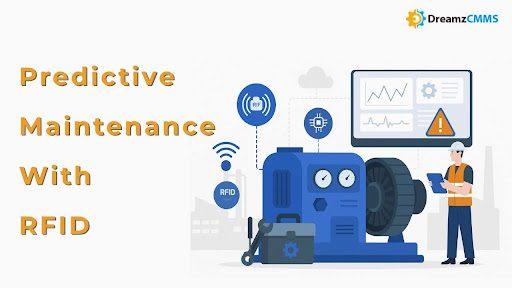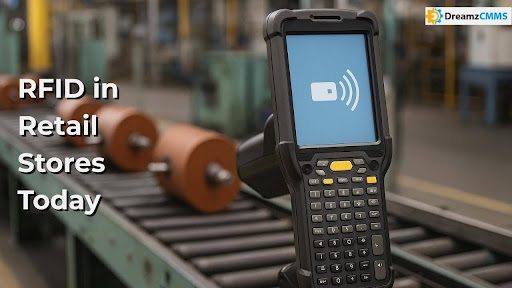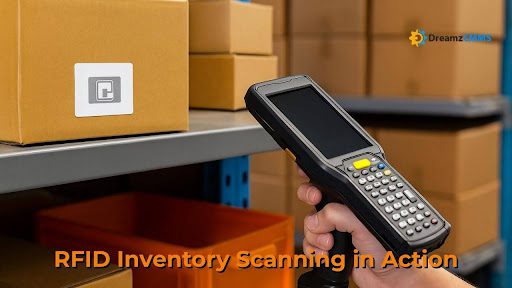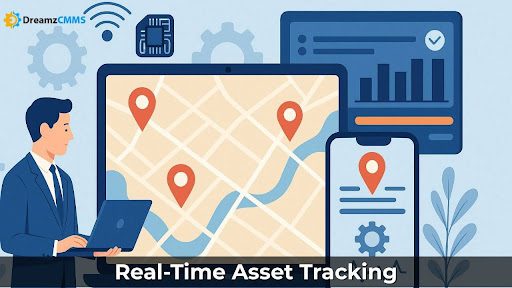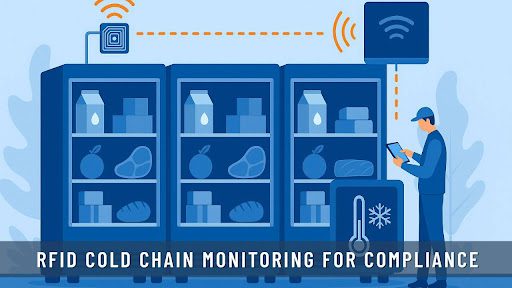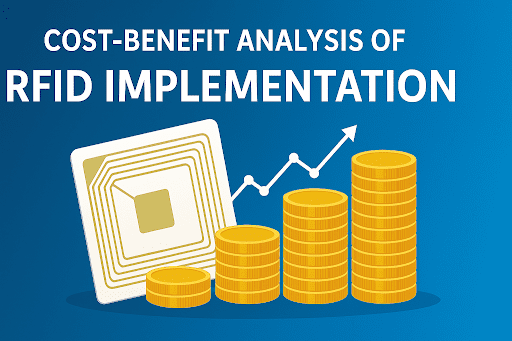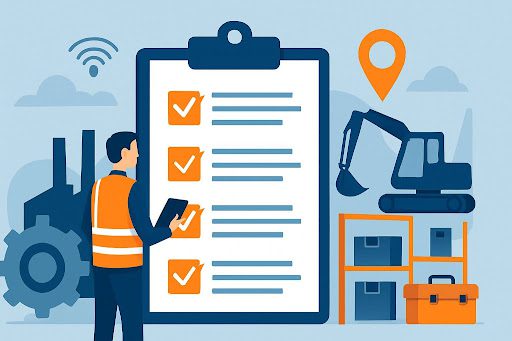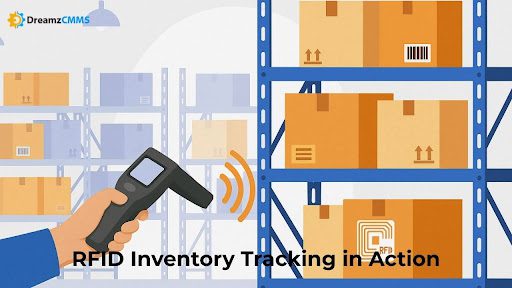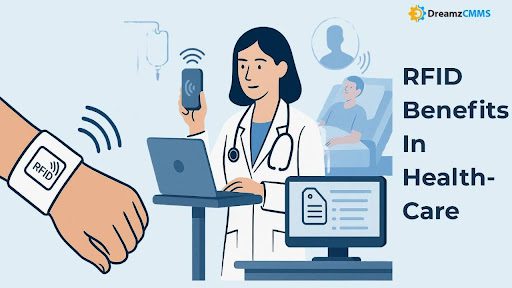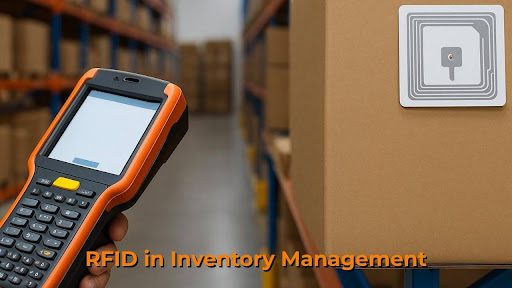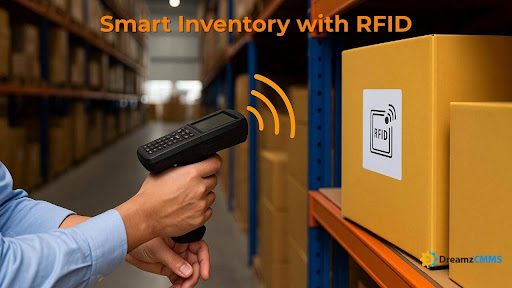 BACK TO Blog
BACK TO Blog
Asset Rental Management
RFID Asset Tracking
Improve Efficiency & Safety with RFID in Hospitals
- June 16, 2025
- DreamzCMMS Team
- 10 minutes read
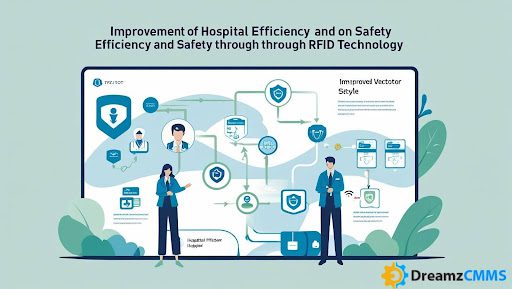
- June 16, 2025
- DreamzCMMS Team
- 10 minutes read
Hospitals use RFID technology to transform their operational management through workflow optimization and enhanced patient protection standards. Hospitals now use advanced tracking systems and automation technology to monitor their assets while tracking patient movements and optimizing inventory levels.
RFID technology serves as a powerful tool to build smart healthcare infrastructure by helping hospitals track assets and implement automated compliance systems.
Optimize Healthcare Workflows with RFID Automation
Your hospital can boost operational effectiveness by implementing RFID-based tracking and automation. RFID technology enables healthcare professionals to gain better understanding of how CMMS and inventory tools create smarter healthcare systems. RFID Asset Tracking Software
What is RFID in Healthcare?
The healthcare industry uses radio wave technology for automatic identification and tracking purposes of items and people. Healthcare facilities deploy RFID tags to track patients alongside medical equipment surgical tools and inventory items to perform real-time data collection.
Components of RFID Healthcare Systems:
- RFID tags (active/passive) on patients, tools, or inventory.
- RFID readers at checkpoints or handheld.
- RFID software for healthcare facilities for integration and automation.
These components come together to create a real-time location system in hospitals, helping facilities track assets, people, and processes.
Benefits of RFID in Hospitals
RFID implementation in hospitals brings transformative advantages that improve both operational efficiency and accurate patient care delivery. The combination of RFID technology enables hospitals to enhance operational workflows and ensure patient safety during all medical procedures.
1. Hospital Workflow Optimization
RFID healthcare solutions help hospitals remove the problems that stem from manual data entry and lost equipment and inventory errors. Central systems receive automatic data transmission from RFID tags which decreases paperwork along with staff workload.
Key advantages include:
- Fast asset retrieval occurs through real-time tracking systems.
- The implementation of RFID systems enables staff to complete their work more efficiently because they spend less time searching for tools and supplies.
- The system provides simple connections with current hospital information systems that enhance operational efficiency.
- Automated alerts and notifications for replenishment, maintenance, or compliance deadlines.
The enhanced level of RFID in healthcare workflow optimization allows organizations to achieve reduced operational expenses while maintaining high-quality services through faster service delivery.
2. Improved Patient Safety
The use of RFID technology enables hospitals to achieve better patient safety outcomes as its primary healthcare application. Patients receive RFID-enabled wristbands which store their medical information including name identification and allergies as well as medication records and procedure schedules during their hospital stay.
Benefits include:
- Accurate patient identification before administering medication, blood transfusions, or performing surgeries.
- The automated system checks medications to stop both incorrect drug prescriptions and harmful drug interactions from happening.
- The system provides immediate warnings when system irregularities or unauthorized entry attempts occur in restricted areas.
- The implementation of this system minimizes human errors which become more likely during critical times in emergency rooms or intensive care units.
RFID technology delivers the correct medical care to patients when they need it thus reducing healthcare mistakes and enhancing patient confidence in medical treatment.
Applications of RFID in Hospitals
1. Hospital Asset Tracking with RFID
Each hospital operates with a vast array of thousands of medical devices. Medical equipment tracking RFID tags:
- Find devices in real time.
- Track usage for maintenance.
- Prevent loss or theft.
Healthcare providers who use RFID-based hospital automation systems reduce asset downtime and optimize their asset usage. RFID tools that integrate with Asset Maintenance Management Software enable scheduled servicing and downtime prevention which maintains operational continuity.
2. RFID Patient Tracking System
Wristbands for patients contain RFID-enabled technology which stores:
- ID and medical history.
- Allergies and current medications.
The RFID patient tracking system enables healthcare staff to verify information in real time thus minimizing risks associated with manual verification.
3. RFID for Medication Management
Healthcare facilities implementing RFID systems for medication management achieve:
- Match drugs with the correct patient.
- Prevent dosage errors.
- Monitor inventory and expiration dates.
This approach maintains strict compliance with safety protocols while benefiting from RFID optimization in healthcare workflows.
4. RFID Badges for Hospital Staff
Hospital staff tracking through RFID badges enables various functions such as:
- Secure access control.
- Workflow analysis and optimization.
- Real-time location visibility in critical zones.
The obtained insights lead to better team efficiency and shorter emergency response durations.
5. Hospital Inventory Management with RFID
The implementation of RFID technology for hospital inventory management enables better tracking of:
- Gloves, gowns, IV fluids.
- Surgical kits and sterilization supplies.
- PPE and emergency stock.
These contribute directly to betterfinancial planning, waste reduction, and also timely access to essential life-saving material, as seen in the improvements in inventory accuracy with RFID asset tracking software.
6. RFID in Surgical Tool Tracking
Hospitals can implement RFID technology to track surgical tools which results in:
- The system checks all surgical tools before procedures end.
- Track sterilization cycles.
- Avoid medical mishaps due to tool retention.
Operational room compliance together with audit and safety assurance requires this technology as a crucial element.
RFID and Patient Safety
A Layer of Protection
RFID systems in hospitals enable medical staff to follow the five essential safety principles of medication administration which include correct patient and drug selection with precise dosage and delivery method and appropriate administration time.
Infection Control with RFID
The implementation of RFID systems helps minimize infection spread through the tracking of:
- Linens and scrubs.
- Disposables and reusable tools.
The combination of RFID healthcare solutions with these systems creates an unparalleled level of hygiene management.
Real-Time Location System in Hospitals
Hospital administrators and clinicians gain real-time visibility through implementing a Real-Time Location system for:
- Asset movement.
- Staff availability.
- Patient transfers and bottlenecks.
The data from IoT and RFID in hospitals enables the development of intelligent workflows which produce predictive analytics. These insights gain additional value through their integration with advanced Facility Management Software to enable space optimization and HVAC monitoring and service response tracking.
Case Study: RFID Deployment in a City Hospital
A Chicago hospital operating at 800 beds encountered persistent equipment loss problems and medication mistakes and inventory management problems. The hospital selected RFID technology to solve their problems and boost safety standards through its deployment in three vital areas including emergency services and surgical operations and central inventory.
The system deployment included medical equipment tagging and the implementation of RFID wristbands for patients as well as RFID tags for medication packaging. The facility installed RFID readers at essential points to link them to their central EHR and inventory software.
Notable Outcomes:
- 30% Reduction in Lost Assets
The implementation of RFID-based hospital asset tracking systems allowed staff to locate high-value medical equipment such as defibrillators and IV pumps and wheelchairs instantly. The time spent searching for devices decreased substantially and the risk of equipment loss and theft became minimal. The hospital used RFID data to link with their Asset Maintenance Management Software which automated maintenance procedures and shortened equipment downtime.
- 99% Accuracy in Patient Identification
Staff members could confirm patient identities through RFID-enabled wristbands before delivering treatments or giving medications. Fast-paced departments like ER and OR saw a significant decrease in patient mismatches and medical errors through this system. The RFID system implementation strengthened hospital safety protocols and created better conditions for patient safety. - 25% Drop in Expired Medications
Pharmacy and nursing staff used RFID technology to track real-time drug inventory and usage patterns and expiry dates through integrated medication management systems. Staff received automatic alerts to remove or reorder drugs which led to waste elimination and reduced stock overages. The hospital inventory management improvements were achieved through the implementation of RFID technology for better management.
Challenges to RFID Adoption
Despite the benefits, challenges include:
- Initial Setup Costs: Hardware and software investment.
- Staff Resistance: Adoption requires training and behavioral shifts.
- Integration Issues: RFID must integrate with EHR and CMMS platforms.
Modern RFID-based hospital automation systems operate on scalable integration capabilities.
RFID vs Barcode in Hospital Environments
| Feature | RFID | Barcode |
| Read Distance | Up to several meters | Requires close-range scan |
| Line of Sight | Not required | Required |
| Simultaneous Reading | Multiple tags at once | One at a time |
| Durability | Resistant to wear | Prone to damage |
| Automation Potential | High (IoT integration possible) | Low |
| Data Storage Capacity | More extensive | Limited |
RFID outperforms barcodes in speed, automation, and real-time visibility, making it ideal for RFID in hospitals.
Future Outlook for RFID in Healthcare
AI and IoT Integration
The combination of IoT and RFID systems in hospitals allows predictive functions to become available through:
- Preventive maintenance.
- Patient movement analysis.
- Smart drug delivery systems.
Cloud-Based Systems
The new RFID software for healthcare facilities includes cloud hosting capabilities which enables remote access and decreases infrastructure expenses.
Blockchain Integration
The exploration of secure data storage for RFID logs continues for ensuring integrity and traceability especially when used in hospital supply chain workflows.
Steps to Implement RFID in Your Hospital
1. Evaluate Current Workflows
Patient tracking and asset utilization and inventory flow operations need examination for identifying existing weaknesses.
2. Choose the Right RFID Technology
Select active or passive RFID technology according to the nature of assets and monitoring requirements.
3. Plan Integration with Existing Systems
EHR and CMMS and billing and inventory tools need to be compatible with the RFID system.
4. Pilot, Train, and Expand
The implementation should begin with one department to collect feedback while training staff before expanding to other departments.
Learnings from implementing RFID in asset tracking suggest starting with critical areas like surgery or emergency response before scaling.
Measurable ROI from RFID in Hospitals
Healthcare organizations that implement RFID for optimizing their workflows achieve substantial performance enhancements across multiple performance indicators. The hospitals achieved a 40% increase in asset utilization which improved equipment utilization and reduced redundant equipment purchases. The automation system together with real-time data collection reduced administrative work by 35%. The use of RFID-enabled wristbands resulted in 98% accurate patient identification which significantly decreased medical errors. The implementation of RFID technology reduced surgical tool errors to 70% while enhancing both compliance and patient safety levels. These combined improvements result in enhanced clinical results together with major operational expense savings.
Use Cases Beyond Hospitals
The application of RFID in healthcare extends well beyond traditional hospital settings. Rehabilitation centers utilize RFID to monitor patient movements and ensure timely therapy sessions. Emergency response units benefit from RFID for tracking critical medical supplies and equipment in the field. In pharmaceutical distribution, RFID ensures drug authenticity, improves inventory accuracy, and prevents counterfeit products from entering the supply chain. Additionally, nursing homes and long-term care facilities use RFID to enhance resident safety, streamline medication administration, and monitor staff workflows more efficiently.
This demonstrates RFID's potential in end-to-end Asset Rental Management Software deployments for medical equipment and mobility aids.
Final Thoughts
Hospitals use RFID as an essential strategic technology to boost both safety levels and operational excellence while improving patient care quality. The implementation of RFID technology brings smarter and more secure operations to all touchpoints from RFID badges for hospital staff to hospital inventory management with RFID.
The implementation of RFID through appropriate strategic planning and software systems generates quantifiable returns on investment and creates a digital healthcare environment of tomorrow.
Take the First Step Toward RFID-Enabled Hospital Management
RFID technology enables hospitals to enhance operational efficiency while ensuring patient safety through optimized resource management. Start your digital transformation journey with DreamzCMMS today. DreamzCMMS | Free Demo
Take the First Step Toward RFID-Enabled Hospital Management
RFID technology enables hospitals to enhance operational efficiency while ensuring patient safety through optimized resource management. Start your digital transformation journey with DreamzCMMS today.
Ready for More?
Talk to one of our CMMS experts and see how DreamzCMMS can simplify your maintenance operations.
Book a free consultation